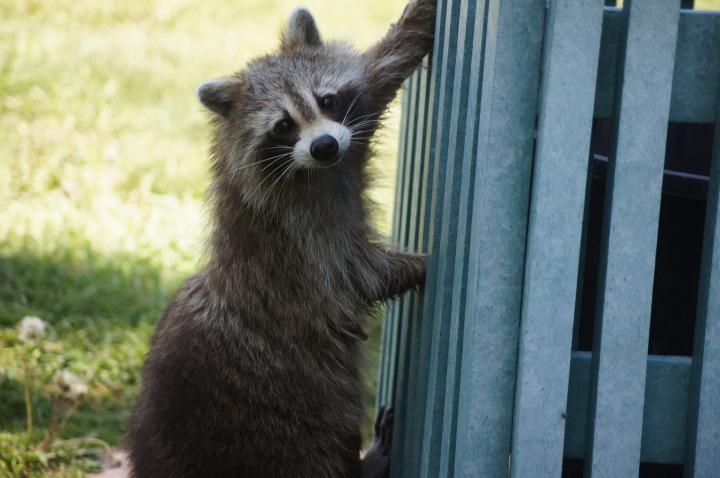There are many good reasons to call wildlife removal in Markham to have raccoons removed from your property. One reason is to keep your pets safe. Raccoons are drawn to human habitations for food and shelter. As a result, they sometimes have encounters with pets. While a cat will usually keep its distance from a raccoon, a dog is more likely to engage. The raccoon, feeling threatened, has no choice but to try to defend itself. The dog often ends up the loser of the fight, but there are things you can do to protect your pets.
Why Do Raccoons Attack Dogs?
Raccoons don’t go looking for fights with dogs. Given the opportunity, they would prefer to avoid a confrontation. On the other hand, a dog that sees a strange animal in its territory is instinctually driven to investigate. It may take an aggressive stance immediately to defend its family, or it may make what it believes is a friendly overture, but either way, the raccoon is likely to feel threatened.
There are three situations in which a raccoon may attack a dog:
- The raccoon is cornered with no easy escape route available.
- The dog has trespassed on the raccoon’s territory. This may happen if your dog spots a raccoon while walking with you in the woods. The raccoon is likely to be more aggressive if it is a female and the dog gets too close to her den or her kits.
- The two are competing over food. Raccoons don’t like dogs, but they love dog food, and if it is left outside, they will help themselves. If the dog finds the raccoon by its food bowl, a fight may break out.
A dog that has encountered a raccoon in the past might be afraid to approach it. Otherwise, dogs generally do not fear raccoons and do not hesitate to engage.
Why Are Raccoon Encounters Dangerous for Dogs?
Raccoons don’t attack dogs for no reason, but they can be very aggressive at defending themselves. They are equipped with sharp teeth and claws that can do grievous injury to a dog. A raccoon may even be able to kill a small dog. When threatened by a dog, raccoons often try to scratch the eyes to disable its vision. If the dog survives, it may be permanently blinded.
Encounters with raccoons can also expose dogs to parasites, such as ticks and fleas. While raccoons often carry rabies, a vaccinated dog could be safe from infection. However, raccoon bites and scratches could expose a dog to other diseases. Furthermore, raccoons on your property could expose your dog to infection indirectly through its urine and feces even if there is no face-to-face encounter.
How Can You Keep Your Dog Safe From Raccoons?
While cats can be kept inside at all times, most dogs occasionally have to go outside for exercise and elimination. You can keep your dog safe when walking by keeping it on a leash at all times to prevent animal encounters.
It is also safer for everyone to deter raccoons from your property. Motion-activated flood lights may scare them away, but it is better not to give them a reason to stay on your property in the first place. Raccoons are likely to hang around an easy source of food, so you should clear your yard of all food and garbage, which to a raccoon is sometimes the same thing. Don’t leave your dog’s food sitting outside overnight, and avoid feeding your dog outside at all, if possible. Keep garbage in tightly sealed containers.
Contact Truly Nolen for Wildlife Removal in Markham
Since the wild animals can be aggressive and carry disease, raccoon control should always be left up to the professionals for the safety of you and your pets. Find out more about our process, which includes decontamination and exclusion.



